Find A Professional
More Items From Ergsy search
-
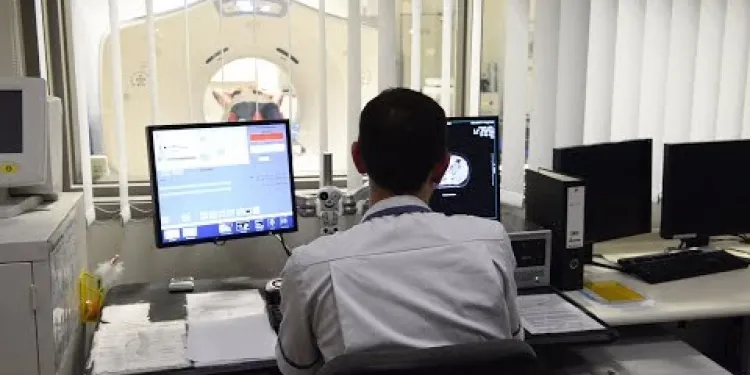
Having radiotherapy for breast cancer - 3 Videos
Relevance: 100%
-
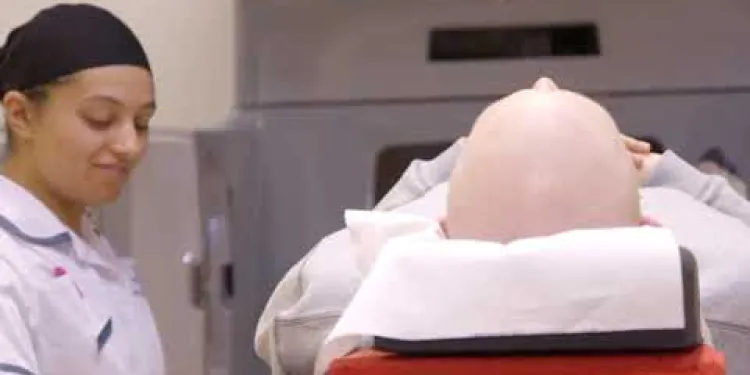
What is Radiotherapy, and its use in treatment for cancers?
Relevance: 66%
-

Breast cancer: testing and treatment | NHS
Relevance: 65%
-

About Breast cancer - signs and symptoms | NHS
Relevance: 60%
-

Other Things You Need to Know About Breast Screening
Relevance: 52%
-

NHS breast cancer screening
Relevance: 51%
-
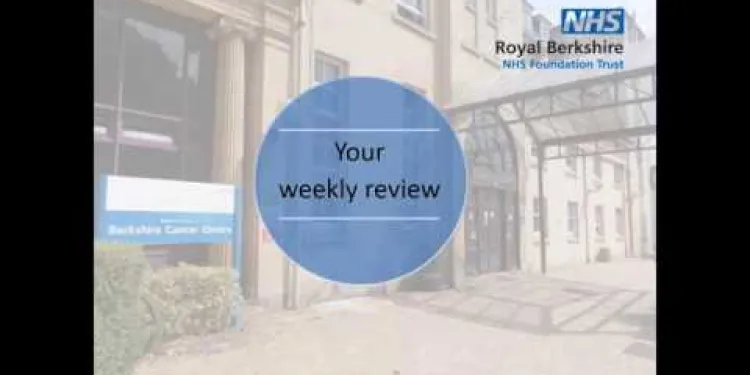
Royal Berkshire NHS Foundation Trust: Radiotherapy for prostate cancer
Relevance: 47%
-

What is the difference between colon cancer and rectal cancer?
Relevance: 44%
-
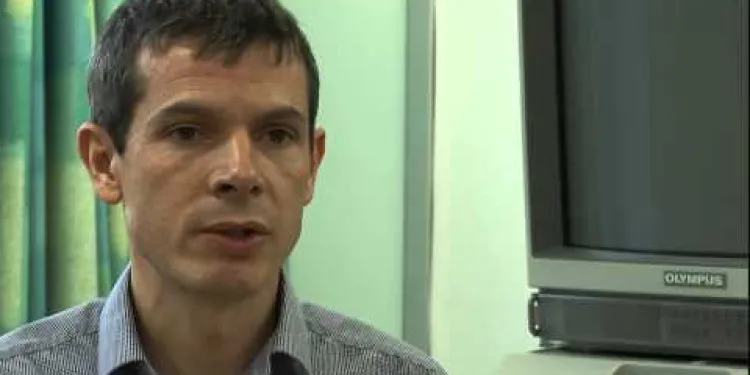
Bowel cancer - Symptoms and signs to look out for
Relevance: 43%
-
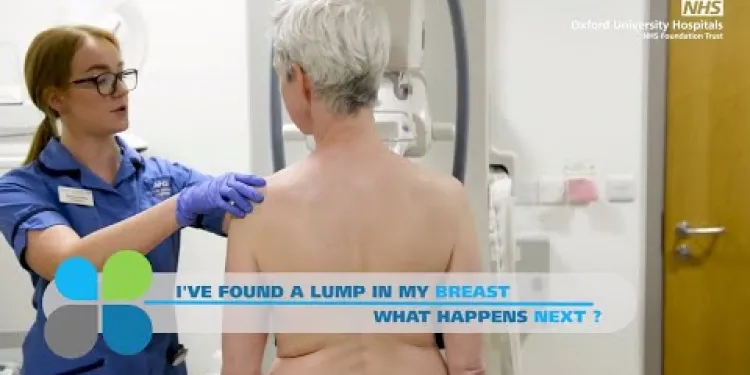
I've found a lump in my breast - What happens next? The breast diagnostic clinic
Relevance: 42%
-

What is Cancer?
Relevance: 39%
-

Treating prostate cancer
Relevance: 38%
-

Ovarian Cancer
Relevance: 38%
-
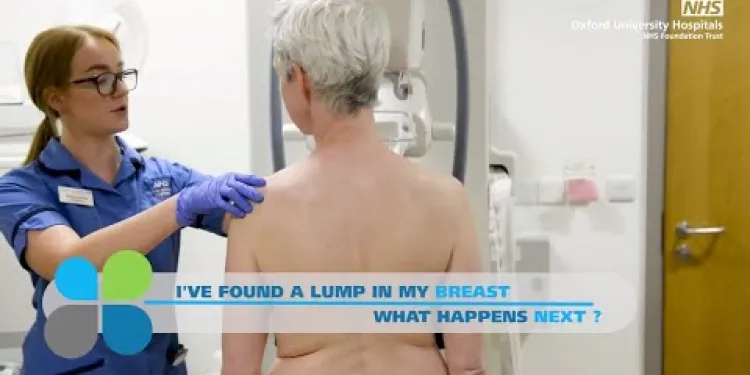
I've found a lump in my breast - What happens next? The breast diagnostic clinic
Relevance: 38%
-

What treatment options are available for bowel cancer?
Relevance: 37%
-

Learn about bowel cancer (British Sign Language version)
Relevance: 37%
-

Endometrial Cancer
Relevance: 36%
-

Don't carry the worry of cancer with you | NHS
Relevance: 36%
-
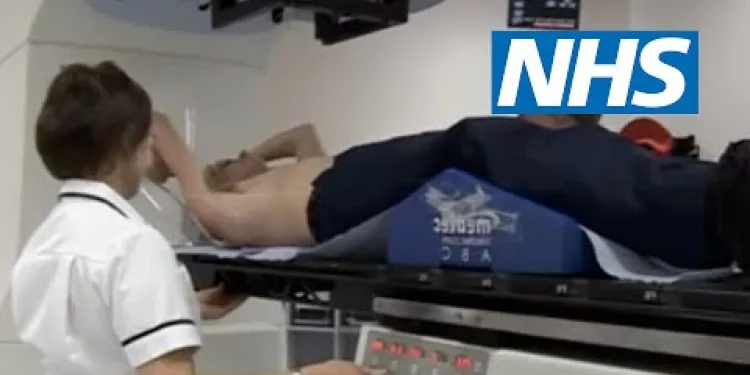
Cancer treatment: what happens during radiotherapy? | NHS
Relevance: 36%
-

Treating breast pain | United Lincolnshire Hospitals NHS Trust
Relevance: 35%
-

Why do men get prostate cancer?
Relevance: 34%
-
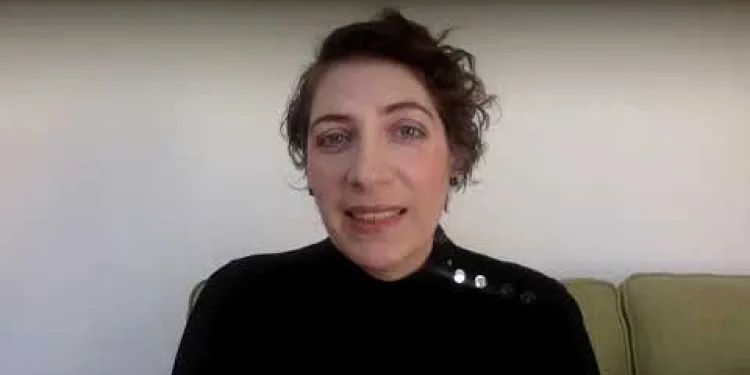
World Pancreatic Cancer Day - No Time to Wait
Relevance: 34%
-

Prostate cancer symptoms - detecting them early
Relevance: 34%
-

Worried about signs that could be cancer? Contact your GP practice | NHS
Relevance: 33%
-

What are the risk factors for bowel cancer?
Relevance: 33%
-
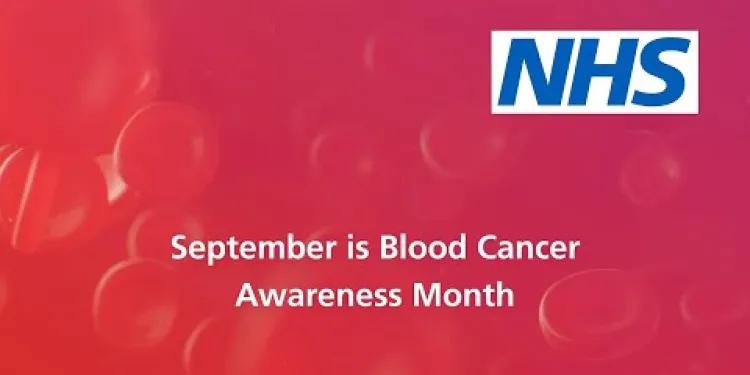
4 facts about blood cancer that you should know | NHS
Relevance: 33%
-

What lifestyle changes can help lower the risk of bowel cancer?
Relevance: 33%
-

Taking a Genetic Family History - The Conversation (Bowel Cancer)
Relevance: 32%
-

Skin cancer education
Relevance: 32%
-

How is the stage of bowel cancer determined?
Relevance: 32%
-

Can bowel cancer spread to other parts of the body?
Relevance: 31%
-

What is Bowel Cancer?
Relevance: 31%
-

What role does diet play in the risk of developing bowel cancer?
Relevance: 31%
-

Prostate cancer diagnosis and tests
Relevance: 31%
-

Head and Neck Cancer Diagnosis
Relevance: 31%
-

Genomics I: An overview of genomics in cancer care
Relevance: 30%
-

What is Prostate Cancer?
Relevance: 30%
-
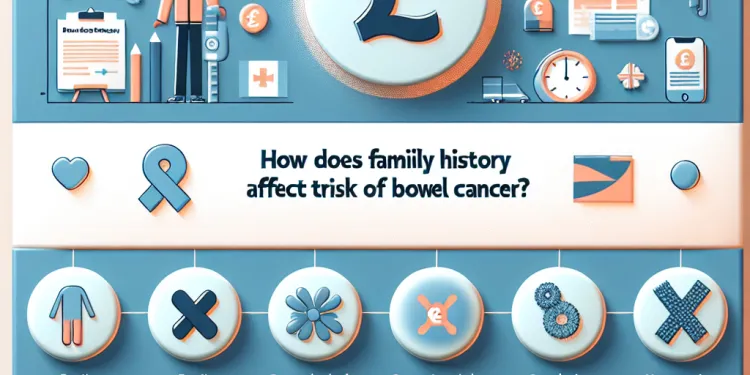
How does family history affect the risk of bowel cancer?
Relevance: 30%
-
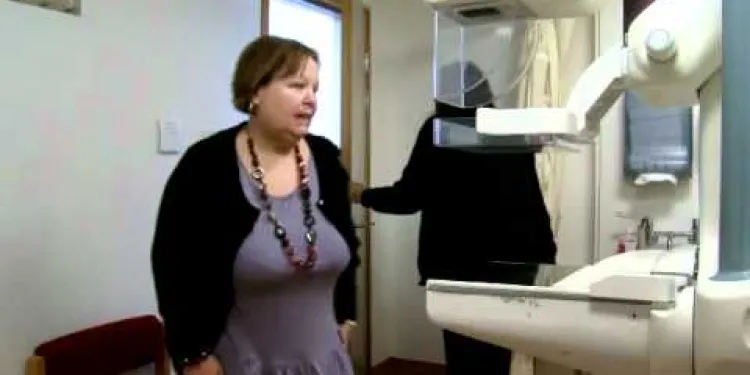
Tower Hamlets breast screening programme
Relevance: 29%
-

Vaginal Cancer
Relevance: 29%
What is radiotherapy, and how does it work in treating breast cancer?
Radiotherapy, also known as radiation therapy, is a medical treatment that uses high-energy rays or particles to target and destroy cancer cells in the breast. It works by damaging the DNA within cancer cells, preventing them from growing and dividing.
Who typically receives radiotherapy as part of their breast cancer treatment?
Radiotherapy is often recommended for breast cancer patients after breast-conserving surgery (lumpectomy) or mastectomy, depending on various factors such as tumor size, lymph node involvement, and cancer stage.
What are the goals of radiotherapy in breast cancer treatment?
The primary goals of radiotherapy in breast cancer treatment are to eradicate any remaining cancer cells in the breast area, reduce the risk of cancer recurrence, and improve overall survival rates.
Is radiotherapy always necessary for breast cancer patients?
No, radiotherapy is not always necessary for every breast cancer patient. The decision to include radiotherapy in the treatment plan depends on the individual's specific case and medical factors.
How is the decision made regarding whether a breast cancer patient needs radiotherapy?
The decision is based on various factors, including the stage of cancer, tumor size, lymph node involvement, and the patient's overall health. A multidisciplinary team of doctors will assess these factors to determine the most appropriate treatment plan.
What types of radiotherapy are used for breast cancer?
External beam radiotherapy (EBRT) and brachytherapy are the two primary types of radiotherapy used for breast cancer treatment.
What is external beam radiotherapy, and how is it administered for breast cancer?
External beam radiotherapy delivers radiation from outside the body using a machine (linear accelerator). Patients typically receive daily treatments over several weeks, with the radiation precisely targeted at the breast or chest area.
Can internal radiation therapy (brachytherapy) be used for breast cancer treatment?
Brachytherapy involves placing radioactive sources directly inside or near the tumor site. While less common, it can be used in select cases of breast cancer.
What are the potential side effects of radiotherapy for breast cancer?
Common side effects include fatigue, skin changes (redness, itching), breast swelling or tenderness, and temporary changes in breast appearance. Rare side effects may include damage to the heart or lungs.
How long does a typical course of breast cancer radiotherapy last?
The duration of radiotherapy varies but typically lasts 3 to 6 weeks, with daily sessions lasting a few minutes.
What is the schedule for radiotherapy sessions, and how often are they done?
Radiotherapy sessions are usually scheduled 5 days a week, with weekends off. The exact schedule and number of sessions depend on the treatment plan.
Are there any lifestyle or dietary restrictions during breast cancer radiotherapy?
Patients may be advised to avoid specific skincare products, such as perfumes and lotions, on the treated area. Dietary restrictions are generally not necessary.
What is the importance of accurate radiation targeting in breast cancer treatment?
Precise targeting is crucial to minimize damage to healthy tissues surrounding the breast while effectively treating the cancerous cells.
Is breast reconstruction possible after radiotherapy, and if so, when is it recommended?
Breast reconstruction is possible after radiotherapy, but it may be delayed until after completion of radiotherapy to ensure better cosmetic outcomes.
Can radiotherapy affect fertility in breast cancer patients?
Radiotherapy to the breast area does not typically affect fertility directly, but it's essential to discuss fertility preservation options with your healthcare team before starting treatment.
What precautions should breast cancer patients take during and after radiotherapy?
Patients should follow their doctor's instructions carefully, attend all scheduled appointments, and report any side effects promptly. After treatment, regular follow-up visits are essential for monitoring and managing potential long-term effects.
How can patients manage radiation-induced skin changes and discomfort?
Patients can use recommended skincare products and techniques to manage skin changes, and pain medications can help alleviate discomfort. It's essential to consult with the healthcare team for specific guidance.
Are there any long-term effects or risks associated with breast cancer radiotherapy?
While the risk of long-term effects is relatively low, potential complications may include radiation fibrosis (thickening of breast tissue) and a slight increase in the risk of heart or lung problems, particularly in left-sided breast cancer cases.
Can radiotherapy be used in combination with other breast cancer treatments like chemotherapy or surgery?
Yes, radiotherapy can be combined with other treatments, and the sequencing of treatments will depend on the patient's specific case and treatment plan.
What resources and support are available for breast cancer patients undergoing radiotherapy?
Patients can access support groups, counseling services, and educational materials through cancer centers, hospitals, and online resources. Additionally, family and friends can provide valuable emotional support during the treatment journey.
Having Radiotherapy for Breast Cancer - 3 Informative Videos
Introduction
Radiotherapy is a common and effective treatment for breast cancer, harnessing high-energy radiation to target and destroy cancer cells. For many individuals in the United Kingdom, understanding the process and what to expect can be instrumental in alleviating anxiety and preparing for treatment. To aid in this, we present three informative videos that comprehensively cover different aspects of radiotherapy for breast cancer.
Video 1: Understanding Radiotherapy for Breast Cancer
The first video serves as an introduction to radiotherapy, explaining its purpose and how it works to treat breast cancer. It delves into the science behind the treatment, including the use of X-rays and gamma rays to pinpoint and destroy cancer cells while minimizing harm to surrounding healthy tissue. This video is essential for anyone new to the concept of radiotherapy and provides a solid foundation of knowledge.
Video 2: The Radiotherapy Process in the UK
The second video takes viewers through the entire radiotherapy process as it is conducted within the UK's NHS framework. Beginning with the initial consultation and planning phase, it covers the various steps like simulation, mapping, and the actual treatment sessions. Special emphasis is placed on what patients can expect during each visit, the role of healthcare professionals involved, and tips for managing side effects commonly associated with radiotherapy treatment.
Video 3: Patient Experiences and Tips
In the third video, viewers hear firsthand from patients who have undergone radiotherapy for breast cancer. These personal accounts provide valuable insight into the emotional and physical experiences associated with treatment. The video also offers practical advice from those who have been through the process, such as coping strategies for side effects, the importance of a support system, and tips for maintaining mental health and well-being during and after treatment.
Conclusion
These three videos together form a comprehensive guide to radiotherapy for breast cancer, tailored to the specific context of healthcare in the United Kingdom. By providing clear and accessible information, they aim to empower patients with the knowledge and confidence needed to navigate their treatment journey. Understanding what to expect during radiotherapy can significantly reduce anxiety and help individuals feel more in control of their health and recovery process.
Having Radiotherapy for Breast Cancer: 3 Informative Videos
Understanding Radiotherapy: What You Need to Know
Radiotherapy is a common and effective treatment for breast cancer, using high-energy rays to destroy cancer cells. In the UK, radiotherapy is typically recommended after surgery to eliminate any remaining cancerous cells and reduce the risk of recurrence. It is a non-invasive approach that targets specific areas, ensuring the surrounding healthy tissue is minimally affected.
Our first video offers an in-depth explanation of how radiotherapy works, the planning process, and what to expect during treatment sessions. It covers the roles of the multidisciplinary team that will support you throughout your treatment journey. Furthermore, the video addresses common concerns and misconceptions about side effects and the potential impact on everyday life.
Radiotherapy Sessions: A Step-by-Step Guide
This video provides a step-by-step guide on what happens during radiotherapy sessions. It begins with the initial assessment and planning visit, where you'll undergo a CT scan to help create a personalized treatment plan. The video details the procedure of positioning on the treatment table, the use of immobilization devices for precision, and real-time imaging to guide the treatment.
You'll also learn about the duration of each session, the frequency of treatments, and the importance of maintaining good skin care and hydration throughout your radiotherapy course. Emphasis is placed on comfort and support, ensuring that you feel informed and prepared at every stage of the process.
Managing Side Effects and Post-Treatment Care
The final video addresses the potential side effects of radiotherapy for breast cancer and offers tips for managing them effectively. Common side effects may include skin irritation, fatigue, and changes in breast tissue. The video highlights strategies for alleviating these side effects, such as gentle skin care techniques and staying active to combat fatigue.
Post-treatment care is crucial for recovery, and the video advises on follow-up appointments, self-examination practices, and signs to watch out for that may require further consultation with your medical team. Empowering you with knowledge and actionable steps, this video ensures you feel confident transitioning from treatment to recovery.
By providing these comprehensive resources, we aim to equip you with the information needed to navigate radiotherapy for breast cancer in the UK with confidence and peace of mind.
Frequently Asked Questions
What is radiotherapy for breast cancer?
Radiotherapy is a treatment that uses high-energy rays to destroy cancer cells in the breast. It is often used after surgery to kill any remaining cancer cells.
How is radiotherapy given to breast cancer patients?
Radiotherapy is usually delivered externally, using a machine called a linear accelerator. Patients can expect to receive treatment over a period of weeks, often in daily sessions.
Is radiotherapy painful?
Radiotherapy itself is not painful, but some patients may experience skin irritation or tenderness in the treated area over time.
What should I expect during my radiotherapy sessions?
During a radiotherapy session, you will lie on a treatment table while the machine moves around you. The session usually lasts about 15 minutes, but the actual radiation exposure is only a few minutes.
What are the side effects of radiotherapy for breast cancer?
Common side effects include skin changes, fatigue, and swelling of the breast. Long-term side effects can include changes in the breast shape or size and, rarely, heart or lung problems.
How can I manage the side effects of radiotherapy?
Your medical team can provide creams for skin irritation and suggest exercises to prevent stiffness. Rest is important to manage fatigue, and maintaining a balanced diet can help with overall recovery.
Can I continue working during radiotherapy treatment?
Many people are able to work during treatment, but it depends on individual circumstances. It may be helpful to discuss flexible working options with your employer.
Will I be radioactive after receiving radiotherapy?
External radiotherapy does not make you radioactive, so it is perfectly safe to be around others, including children, after your sessions.
Why is radiotherapy used after surgery for breast cancer?
Radiotherapy is used after surgery to reduce the risk of breast cancer returning by eliminating any remaining undetectable cancer cells.
Will I lose my hair during radiotherapy?
Radiotherapy to the breast does not typically cause hair loss on the scalp, but you might experience some hair loss in the treatment area.
How should I care for my skin during radiotherapy?
Use only recommended skincare products, avoid tight clothing, and protect the treated area from the sun. Your medical team will give specific instructions.
Is radiotherapy effective for all types of breast cancer?
Radiotherapy is an effective treatment for many types of breast cancer, particularly in lowering the risk of recurrence after breast-conserving surgery.
Can I drive myself to radiotherapy appointments?
Unless you feel unwell, most patients can drive themselves to appointments. If fatigue becomes an issue, consider asking for help with transportation.
How long after radiotherapy can I expect to see results?
Radiotherapy effects are gradual. While side effects can be immediate, it may take weeks or months for the full therapeutic benefits to be evident.
What should I discuss with my radiotherapy team before treatment begins?
Discuss any pre-existing conditions, medications you are taking, potential side effects, and personal concerns, as well as practical issues like scheduling and transportation.
Useful Links
Useful links from: About Breast cancer - signs and symptoms | NHS
- NHS - Breast cancer in women Comprehensive information on breast cancer, including symptoms, causes, diagnosis, treatment, and prevention.
- Breast Cancer Now - Symptoms and signs Detailed guide on the signs and symptoms of breast cancer provided by Breast Cancer Now, a leading UK charity.
- Cancer Research UK - Breast cancer symptoms Information from Cancer Research UK on the common symptoms of breast cancer and when to see a doctor.
- Macmillan Cancer Support - Signs and symptoms of breast cancer Supportive resource from Macmillan Cancer Support offering information on the signs and symptoms of breast cancer and how to cope with diagnosis and treatment.
Useful links from: What is Radiotherapy, and its use in treatment for cancers?
- NHS: Overview of Radiotherapy Provides a comprehensive overview of what radiotherapy is, including how it works, the types, what it's used for, and possible side effects.
- Macmillan Cancer Support: Radiotherapy Detailed information on radiotherapy, focusing on its role in cancer treatment, what to expect, preparing for treatment, and managing side effects.
- Cancer Research UK: Radiotherapy Thorough guide covering the basics of radiotherapy, the treatment process, types of radiotherapy, potential side effects, and answers to common questions.
- Breast Cancer Now: Radiotherapy for Breast Cancer Specific information on the use of radiotherapy for treating breast cancer, discussing how the treatment works, what happens during radiotherapy sessions, and tips for coping with side effects.
Useful links from: I've found a lump in my breast - What happens next? The breast diagnostic clinic
- NHS - Breast cancer in women Provides comprehensive information on breast cancer, including symptoms, diagnosis, treatment options, and what to expect at the breast clinic.
- NHS - Breast screening Details about the NHS breast screening program, including who is eligible, how the screening is done, and what the results mean.
- Breast Cancer Now - What to expect at a breast clinic appointment Offers detailed information on what happens at a breast clinic appointment, including the types of tests and examinations that may be performed.
- Macmillan Cancer Support - Tests for breast cancer Provides an overview of the various tests that may be conducted to diagnose breast cancer, with explanations of each procedure.
Useful links from: Treating breast pain | United Lincolnshire Hospitals NHS Trust
- NHS - Breast Pain (Mastalgia) Provides detailed information on the causes, diagnosis, and treatment options for breast pain, including self-care tips and when to seek medical help.
- Breast Cancer Now - Breast Pain Offers comprehensive guidance on understanding breast pain, potential causes, and how to manage it, along with information on related breast conditions.
- Macmillan Cancer Support - Breast Pain Macmillan Cancer Support provides resources and support for those experiencing breast pain, including symptom management and advice on when to see a doctor.
- United Lincolnshire Hospitals NHS Trust - Breast Care Information on breast care services provided by the United Lincolnshire Hospitals NHS Trust, including advice on managing breast pain and accessing specialist care.
Useful links from: Breast cancer: testing and treatment | NHS
- NHS - Breast cancer NHS overview page on breast cancer, including information on symptoms, causes, diagnosis, treatment, and living with breast cancer.
- NHS - Breast cancer - Diagnosis Information from the NHS on the various tests and procedures used to diagnose breast cancer, including mammograms, ultrasounds, and biopsies.
- Breast Cancer Now - Treatment for breast cancer Comprehensive guide from Breast Cancer Now on the treatment options available for breast cancer, including surgery, chemotherapy, radiotherapy, and hormone therapy.
- Macmillan Cancer Support - Breast cancer Resourceful guide from Macmillan Cancer Support providing information on breast cancer, including symptoms, stages, diagnosis, treatments, and support options.
Useful links from: I've found a lump in my breast - What happens next? The breast diagnostic clinic
- NHS - Breast Cancer Overview Information from the NHS on the symptoms, diagnosis, and treatment of breast cancer.
- NHS - Breast Lumps Guidance from the NHS on what steps to take if you find a lump in your breast and when to see a GP.
- Breast Cancer Now - Your Breast Clinic Appointment Breast Cancer Now provides information on what to expect at your breast clinic appointment and the diagnosis process.
- Macmillan Cancer Support - Breast Lumps Macmillan Cancer Support offers advice on breast lumps, including potential causes and the steps for diagnosis.
Useful links from: Tower Hamlets breast screening programme
- NHS Breast Screening Programme Official NHS page providing extensive information on the breast screening programme, its importance, procedures, and how to book an appointment.
- Tower Hamlets NHS Breast Screening Barts Health NHS Trust resource page dedicated to breast screening services in Tower Hamlets, including details on the local screening unit and contact information.
- Breast Cancer Now UK-based charity offering information and support on breast cancer screening, diagnosis, and what to expect from the screening process.
- Jo's Cervical Cancer Trust - Breast Screening Section Although primarily focused on cervical cancer, this UK charity provides useful information on breast screening as part of their broader women's health resources.
Useful links from: Other Things You Need to Know About Breast Screening
- NHS - Breast Screening Official NHS page providing comprehensive information on breast screening, including the process, benefits, and how to get screened.
- Breast Cancer Now - Breast Screening Breast Cancer Now's in-depth guide on breast screening, including eligibility, the screening process, and follow-up procedures.
- Breast Cancer UK - Breast Screening Information from Breast Cancer UK about reducing breast cancer risk and the importance of regular breast screening.
- Macmillan Cancer Support - Breast Cancer Screening Macmillan Cancer Support's resources for understanding breast cancer screening and its role in early detection and treatment.
Useful links from: Breasts and Mastitis
- NHS - Breastfeeding and Mastitis NHS page providing information on mastitis, including symptoms, causes, diagnosis, and treatment.
- NHS - Breast Pain NHS page offering comprehensive information on breast pain, including types, causes, and when to seek medical advice.
- Breast Cancer Now - Breast Cancer and Breast Health UK charity Breast Cancer Now provides detailed information on breast cancer, breast health, and related conditions.
- La Leche League GB - Mastitis and Breastfeeding UK-based La Leche League provides support and information on breastfeeding, including managing mastitis.
Useful links from: AI Breast Cancer Screening in the UK
- NHS Breast Screening Programme This NHS page provides information about the breast cancer screening programme in the UK, explaining the screening process, eligibility, and what to expect.
- Cancer Research UK - Breast Cancer Screening Cancer Research UK's page on breast cancer screening offers insights into how breast screening works, its benefits and risks, and the role of AI in enhancing screening techniques.
- Breast Cancer Now - The Impact of AI on Breast Cancer Screening Breast Cancer Now discusses how AI technologies are contributing to improvements in breast cancer screening, with potential benefits for early detection and patient outcomes.
- The Royal Marsden NHS Foundation Trust - Technology and Innovations in Cancer Screening The Royal Marsden NHS Foundation Trust highlights the latest innovations in cancer screening technology, including the use of AI to improve diagnostic accuracy in breast cancer screening.
Useful links from: Radiotherapy Services at University Hospital
- NHS - Radiotherapy Overview of radiotherapy treatment, including how it works, what to expect during treatment, and potential side effects.
- Cancer Research UK - Radiotherapy Information from Cancer Research UK about radiotherapy, including how it is planned, the types available, and how it may affect you.
- Macmillan Cancer Support - Radiotherapy Detailed resource from Macmillan Cancer Support on radiotherapy, including how it works, the treatment process, and managing side effects.
- University Hospital - Radiotherapy Services Information about radiotherapy services at University Hospitals of North Midlands NHS Trust, including available treatments and patient support.
Useful links from: A Radiotherapy appointment in east and North Hertfordshire
- East and North Hertfordshire NHS Trust - Radiotherapy Information on radiotherapy services provided by the East and North Hertfordshire NHS Trust, including treatment options and patient support services.
- Macmillan Cancer Support - Radiotherapy Comprehensive guide on radiotherapy provided by Macmillan Cancer Support, covering what to expect, how to prepare, and managing side effects.
- Cancer Research UK - Radiotherapy Detailed information from Cancer Research UK about radiotherapy, including different types, what happens during treatment, and potential side effects.
- NHS - Radiotherapy NHS guide on radiotherapy, including the different types, the process, and advice on managing side effects and aftercare.
Useful links from: What is it like having Prostate Radiotherapy treatment?
- NHS: Radiotherapy for Prostate Cancer This page on the NHS website gives an overview of radiotherapy treatment for prostate cancer, including what to expect during and after treatment.
- Macmillan Cancer Support: Radiotherapy for Prostate Cancer Macmillan Cancer Support provides detailed information about radiotherapy for prostate cancer, including side effects and tips for managing them.
- Cancer Research UK: Radiotherapy for Prostate Cancer Cancer Research UK offers comprehensive guidance on radiotherapy as a treatment for prostate cancer, detailing how the treatment works and what patients can expect.
- Prostate Cancer UK: Radiotherapy Prostate Cancer UK provides in-depth information on radiotherapy for prostate cancer, including preparation, procedure, and side effects.
Useful links from: Royal Berkshire NHS Foundation Trust: Radiotherapy for prostate cancer
- NHS - Radiotherapy for Prostate Cancer This page on the NHS website provides comprehensive information on radiotherapy, including how it's used to treat prostate cancer, what to expect during treatment, and potential side effects.
- Prostate Cancer UK - Radiotherapy Prostate Cancer UK offers detailed information on radiotherapy for prostate cancer, including the different types, how treatment is planned, and the possible side effects.
- Cancer Research UK - Radiotherapy for Prostate Cancer Cancer Research UK's page on radiotherapy for prostate cancer includes information on the process, preparing for treatment, and managing side effects, along with personal stories from patients.
- Macmillan Cancer Support - Radiotherapy Macmillan Cancer Support provides resources and support for those undergoing radiotherapy for prostate cancer, including information on treatment types, coping with side effects, and support services available.
- Ergsy carfully checks the information in the videos we provide here.
- Videos shown by Youtube after a video has completed, have NOT been reviewed by ERGSY.
- To view, click the arrow in centre of video.
- Most of the videos you find here will have subtitles and/or closed captions available.
- You may need to turn these on, and choose your preferred language.
- Go to the video you'd like to watch.
- If closed captions (CC) are available, settings will be visible on the bottom right of the video player.
- To turn on Captions, click settings .
- To turn off Captions, click settings again.
More Items From Ergsy search
-

Having radiotherapy for breast cancer - 3 Videos
Relevance: 100%
-

What is Radiotherapy, and its use in treatment for cancers?
Relevance: 66%
-

Breast cancer: testing and treatment | NHS
Relevance: 65%
-

About Breast cancer - signs and symptoms | NHS
Relevance: 60%
-

Other Things You Need to Know About Breast Screening
Relevance: 52%
-

NHS breast cancer screening
Relevance: 51%
-

Royal Berkshire NHS Foundation Trust: Radiotherapy for prostate cancer
Relevance: 47%
-

What is the difference between colon cancer and rectal cancer?
Relevance: 44%
-

Bowel cancer - Symptoms and signs to look out for
Relevance: 43%
-

I've found a lump in my breast - What happens next? The breast diagnostic clinic
Relevance: 42%
-

What is Cancer?
Relevance: 39%
-

Treating prostate cancer
Relevance: 38%
-

Ovarian Cancer
Relevance: 38%
-

I've found a lump in my breast - What happens next? The breast diagnostic clinic
Relevance: 38%
-

What treatment options are available for bowel cancer?
Relevance: 37%
-

Learn about bowel cancer (British Sign Language version)
Relevance: 37%
-

Endometrial Cancer
Relevance: 36%
-

Don't carry the worry of cancer with you | NHS
Relevance: 36%
-

Cancer treatment: what happens during radiotherapy? | NHS
Relevance: 36%
-

Treating breast pain | United Lincolnshire Hospitals NHS Trust
Relevance: 35%
-

Why do men get prostate cancer?
Relevance: 34%
-

World Pancreatic Cancer Day - No Time to Wait
Relevance: 34%
-

Prostate cancer symptoms - detecting them early
Relevance: 34%
-

Worried about signs that could be cancer? Contact your GP practice | NHS
Relevance: 33%
-

What are the risk factors for bowel cancer?
Relevance: 33%
-

4 facts about blood cancer that you should know | NHS
Relevance: 33%
-

What lifestyle changes can help lower the risk of bowel cancer?
Relevance: 33%
-

Taking a Genetic Family History - The Conversation (Bowel Cancer)
Relevance: 32%
-

Skin cancer education
Relevance: 32%
-

How is the stage of bowel cancer determined?
Relevance: 32%
-

Can bowel cancer spread to other parts of the body?
Relevance: 31%
-

What is Bowel Cancer?
Relevance: 31%
-

What role does diet play in the risk of developing bowel cancer?
Relevance: 31%
-

Prostate cancer diagnosis and tests
Relevance: 31%
-

Head and Neck Cancer Diagnosis
Relevance: 31%
-

Genomics I: An overview of genomics in cancer care
Relevance: 30%
-

What is Prostate Cancer?
Relevance: 30%
-

How does family history affect the risk of bowel cancer?
Relevance: 30%
-

Tower Hamlets breast screening programme
Relevance: 29%
-

Vaginal Cancer
Relevance: 29%